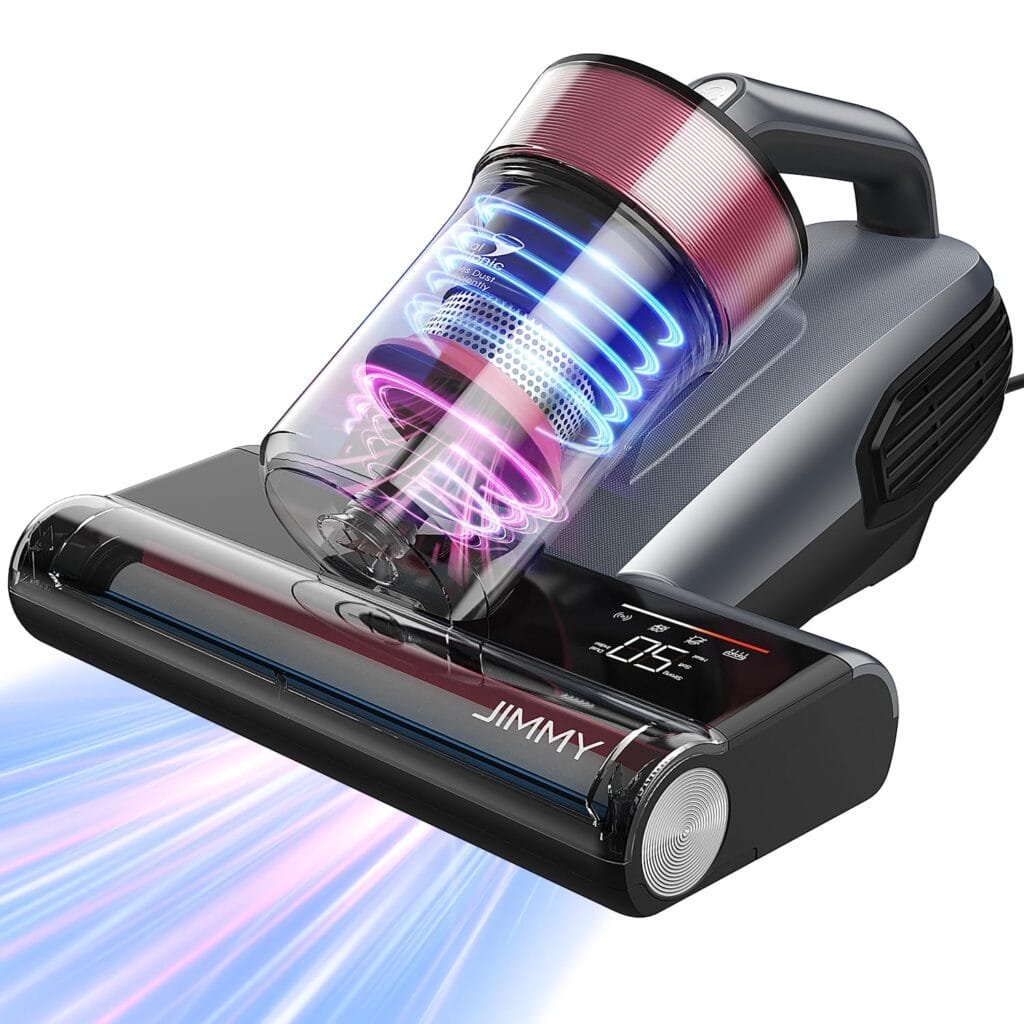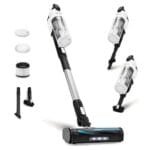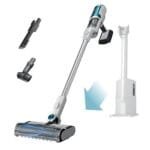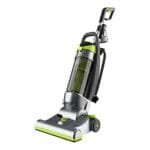HEPA technology is key in modern vacuums. It captures tiny particles effectively.
Understanding how HEPA technology works can transform your cleaning routine. This advanced filtration system is designed to trap 99. 97% of particles as small as 0. 3 microns. That means dust, pollen, pet dander, and even some bacteria are no match for HEPA filters.
In this post, we’ll explore the science behind HEPA technology, its benefits, and how it enhances vacuum performance. By the end, you’ll see why HEPA filters are essential for a cleaner, healthier home. Let’s dive into the details of this remarkable technology and its role in modern vacuums.
Hepa Filters Explained
HEPA filters are a crucial part of modern vacuum cleaners. They ensure cleaner air in your home. Understanding how they work can help you choose the right vacuum for your needs.
Let’s dive into what HEPA means and the construction of these filters.
What Hepa Means
HEPA stands for High-Efficiency Particulate Air. These filters trap tiny particles that other filters might miss. They must meet strict standards. They capture 99.97% of particles that are 0.3 microns in size. This includes dust, pollen, and pet dander.
HEPA filters are popular in homes with allergies. They also help in environments where clean air is essential.
Filter Construction
HEPA filters use a dense mat of fibers. These fibers are usually made from fiberglass. The mat traps particles as air passes through it. The construction is key to the filter’s efficiency.
There are different layers in a HEPA filter. Larger particles get caught in the first layers. Smaller particles are trapped deeper in the filter. This multi-layer approach ensures maximum filtration. The design also helps maintain airflow in the vacuum.
Understanding the construction helps you see why HEPA filters are so effective. They are more than just a simple screen. They are a complex system designed to keep your air clean.

Credit: www.facebook.com
Benefits Of Hepa Technology
HEPA technology has transformed modern vacuums. It stands for High-Efficiency Particulate Air. This technology offers many benefits. It helps in keeping your home clean and your family healthy. Let’s explore some key benefits.
Health Advantages
HEPA filters trap tiny particles. These include dust, pollen, and pet dander. Regular vacuums often miss these. Cleaner air means fewer allergens. This leads to better health. HEPA filters also remove bacteria and viruses. This reduces the spread of illnesses. Breathing cleaner air is easier.
Allergen Reduction
Allergens can cause sneezing, coughing, and itching. HEPA filters trap 99.97% of particles. These particles are as small as 0.3 microns. This means fewer allergens in your home. People with allergies will feel relief. It creates a safer environment for everyone. Your home will feel fresher.
How Hepa Filters Trap Particles
HEPA filters are a key feature in modern vacuums. They are designed to trap particles and ensure clean air. Understanding how they work can help you appreciate their importance.
Particle Size
HEPA filters can trap particles as small as 0.3 microns. This includes dust, pollen, and pet dander. Even some bacteria and viruses can be caught. These small particles are often the cause of allergies. By trapping them, HEPA filters improve air quality.
Mechanisms Of Action
HEPA filters use several methods to trap particles. The first method is interception. This happens when particles stick to fibers in the filter. Larger particles are caught this way.
The second method is impaction. Particles in the air collide with fibers and get stuck. This works well for medium-sized particles. The third method is diffusion. Small particles move in a zigzag pattern and collide with fibers. They get trapped due to their erratic movement.
These three methods work together. They ensure that most particles are caught. This makes HEPA filters very effective. Your vacuum cleaner can remove even the smallest particles. This results in cleaner air in your home.

Credit: www.amazon.com
Hepa Vs. Traditional Filters
When choosing a vacuum, one important aspect to consider is the filter type. HEPA filters and traditional filters serve the same purpose but differ in efficiency and longevity. Understanding these differences can help you make an informed decision.
Efficiency Comparison
HEPA filters capture 99.97% of particles as small as 0.3 microns. They trap dust, pollen, and pet dander, which improves air quality. Traditional filters, on the other hand, do not capture particles as effectively. They often miss smaller particles, letting them back into the air.
The efficiency of HEPA filters makes them ideal for allergy sufferers. They provide cleaner air, reducing allergy symptoms. Traditional filters are less effective for those with allergies.
Longevity
HEPA filters last longer than traditional filters. They maintain their efficiency over time. Regular cleaning or replacing is still necessary but less frequent.
Traditional filters clog faster. They need more frequent replacements. This makes them less cost-effective in the long run.
Modern Vacuum Designs
Modern vacuum designs have taken cleaning to the next level. They combine sleek aesthetics with powerful functionalities. These vacuums are not just about removing dirt. They also focus on improving air quality. The integration of HEPA technology plays a key role in this advancement.
HEPA, which stands for High-Efficiency Particulate Air, filters out tiny particles. This ensures a cleaner and healthier home environment. Let’s explore how HEPA technology is integrated into modern vacuums.
Integration Of Hepa
HEPA filters are now a standard in many modern vacuums. They trap 99.97% of particles as small as 0.3 microns. This includes dust, pollen, and pet dander. The integration process is seamless. The filters are placed in the vacuum’s air pathway. This ensures that all the sucked-in air passes through the HEPA filter. The result is clean, allergen-free air expelled back into your home.
Many vacuums use multiple layers of filtration. This enhances the overall efficiency. A pre-filter catches larger particles first. This helps extend the life of the HEPA filter. Regular maintenance ensures optimal performance. Cleaning or replacing the filter as recommended by the manufacturer is key.
Innovative Features
Modern vacuums come with a range of innovative features. These features enhance usability and convenience. Cordless designs offer more freedom of movement. They eliminate the hassle of tangled cords. Many models are lightweight and easy to carry. This makes cleaning less of a chore.
Some vacuums include smart technology. Features like automatic adjustments for different floor types are common. Sensors can detect dirt levels and adjust suction power accordingly. This ensures efficient cleaning without wasting energy. Bagless designs with clear dust containers are popular. They allow you to see when it’s time to empty the vacuum.
Advanced noise reduction technology makes vacuums quieter. This is a big plus for households with children or pets. Ergonomic handles and swivel heads make maneuvering easier. These features collectively enhance the user experience. They make modern vacuums more appealing and effective.
Maintaining Your Hepa Filter
Modern vacuums use HEPA technology to capture tiny particles. This keeps your air clean and fresh. Regular maintenance ensures peak performance and long filter life.
Maintaining Your HEPA FilterKeeping your HEPA filter in top condition is crucial for ensuring your vacuum cleaner works efficiently. Proper maintenance extends the filter’s lifespan and ensures it continues to trap allergens effectively. Let’s dive into some practical tips.###Cleaning Tips
Regular cleaning is essential. First, always check the manufacturer’s instructions to see if your HEPA filter is washable or non-washable. If it’s washable, rinse it gently with lukewarm water. Avoid using any cleaning agents as they can damage the filter material. Allow it to air dry completely before reinstalling.For non-washable filters, tap out loose dust and debris by gently tapping the filter against a hard surface. Use a soft brush or a vacuum with a nozzle attachment to remove finer particles. Make sure you handle the filter carefully to avoid any tears or damage.###Replacement Guidelines
Even with diligent cleaning, HEPA filters need replacing over time. But how do you know when it’s time? A good rule of thumb is to replace your HEPA filter every six months to a year, depending on usage. If you have pets or suffer from allergies, you might need to replace it more often.Check your filter regularly. If it appears grey or clogged, it’s time for a new one. Also, pay attention to your vacuum’s performance. If you notice a decrease in suction power, it might be due to a clogged filter.Have you ever experienced a sudden drop in your vacuum’s efficiency? It might have been a clogged HEPA filter. Regular checks and replacements can save you from this hassle.By keeping your HEPA filter clean and knowing when to replace it, you ensure that your vacuum performs at its best. How often do you check your vacuum’s filter? Make it a habit, and you’ll notice a significant difference in your home’s air quality.Choosing The Right Vacuum
Choosing the right vacuum can be overwhelming. Many models, brands, and features exist. One key feature to consider is HEPA technology. This ensures your home stays clean and free of allergens. But how do you choose the right one?
Factors To Consider
First, consider the size of your home. A large home may need a powerful vacuum. A smaller home may not need as much power. Next, think about the type of flooring you have. Carpeted floors need a different vacuum than hardwood floors. Allergies are another important factor. HEPA filters are great for reducing allergens. Make sure the vacuum has a true HEPA filter.
Top Brands
Several brands are known for their HEPA vacuums. Dyson offers powerful and efficient models. Their vacuums are great for all types of floors. Another top brand is Shark. Shark vacuums are versatile and easy to use. They also have true HEPA filters. Miele is another trusted brand. Miele vacuums are durable and have excellent filtration. Each of these brands has options to fit different budgets. Choose a brand that meets your needs.
Real-world Applications
HEPA technology in modern vacuums captures tiny particles, improving air quality. It helps reduce allergens, making homes healthier. Ideal for households with pets or allergies.
### Real-World ApplicationsHEPA technology is not just a buzzword—it’s a game-changer in vacuum cleaners. Let’s delve into how this technology is making a tangible difference in real-world settings.### Home UseIn homes, HEPA filters in vacuums are a boon for allergy sufferers. They capture 99.97% of particles as small as 0.3 microns. This means your vacuum isn’t just cleaning; it’s improving your air quality.Imagine coming home after a long day to a space that feels fresher and cleaner. That’s the magic of HEPA technology. You can breathe easier knowing that the allergens are being trapped and not recirculated into the air.Pet owners also find HEPA vacuums indispensable. They effectively capture pet dander and hair, making your home more comfortable for everyone, including guests who might be sensitive to pet allergens.### Industrial SettingsHEPA technology also shines in industrial environments. Factories and workshops generate a lot of dust and debris. A vacuum with a HEPA filter ensures that these particles are effectively captured and not released back into the air.This is crucial for maintaining a safe working environment. Workers are less likely to inhale harmful particles, reducing the risk of respiratory issues. It’s not just about compliance with safety regulations; it’s about genuinely caring for the well-being of employees.Laboratories and clean rooms are another area where HEPA vacuums are essential. These spaces require stringent air quality standards. A HEPA filter ensures that even the tiniest particles are captured, maintaining the integrity of sensitive experiments and processes.Have you ever considered how much cleaner your workspace could be with a HEPA vacuum? It’s worth thinking about, especially if you value a healthier, safer environment.By leveraging HEPA technology, modern vacuums are setting new standards in both residential and industrial settings. Whether it’s making your home a sanctuary or ensuring a safe workplace, the benefits are clear and tangible.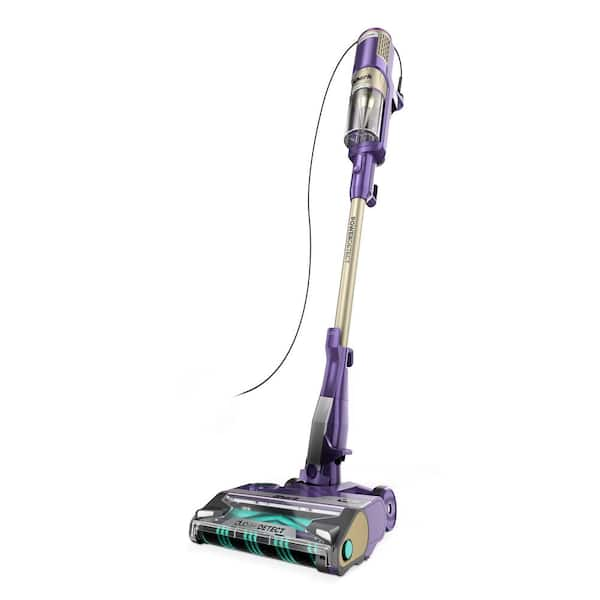
Credit: www.homedepot.com
Frequently Asked Questions
How Do Hepa Vacuums Work?
HEPA vacuums use a high-efficiency particulate air filter to trap 99. 97% of particles, including dust, allergens, and pet dander. This filter forces air through a fine mesh, capturing tiny pollutants and ensuring cleaner, healthier air.
What Are The Two Disadvantages Of Hepa Filters?
HEPA filters can be expensive to replace and maintain. They may also reduce airflow, impacting HVAC system efficiency.
Is It Good To Have A Hepa Filter In A Vacuum Cleaner?
Yes, having a HEPA filter in a vacuum cleaner is beneficial. It captures 99. 97% of dust, allergens, and pollutants, improving indoor air quality.
What Is The Difference Between A Hepa Vacuum And A Regular Vacuum?
A HEPA vacuum has a high-efficiency filter that traps 99. 97% of particles, while a regular vacuum lacks this filter.
Conclusion
HEPA technology makes modern vacuums more efficient. It captures tiny particles. This improves air quality. Your home becomes cleaner and healthier. Understanding HEPA filters can help you choose better vacuums. Investing in a HEPA vacuum benefits everyone. Clean air means better health.
Make an informed choice for a healthier home environment. Happy cleaning!

